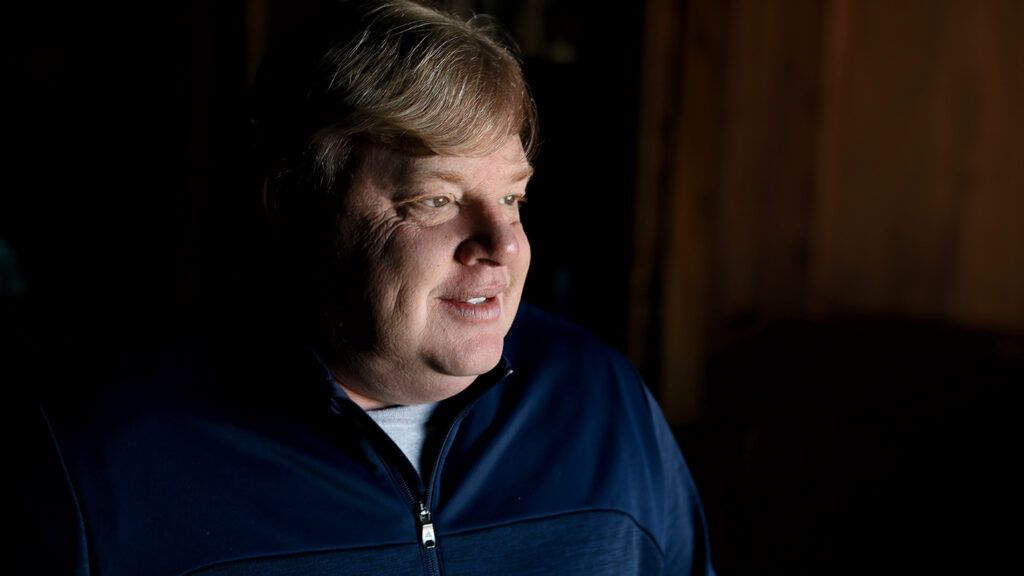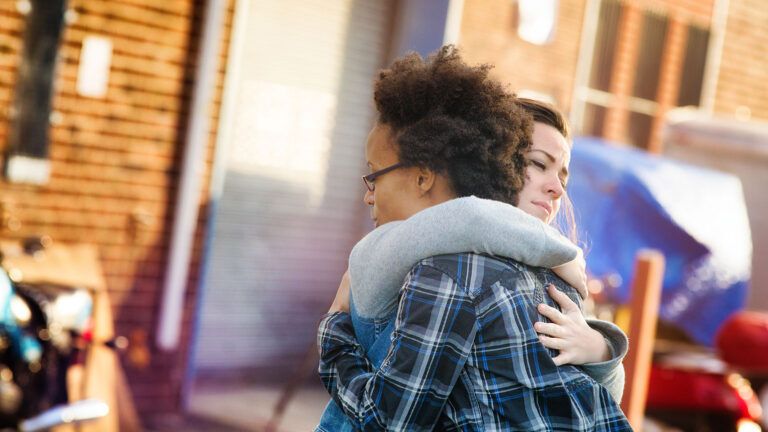The call came late on a Monday evening. It was an elder at my church.
“Bill, I just heard from Kathe,” he said. “Tim died.”
Tim Russell was an assistant pastor at Second Presbyterian Church in Memphis, where my family had worshipped for years. He’d been diagnosed with Covid-19 a little more than two weeks earlier. He was gasping for breath the last time I’d called him. Now he was gone. No visitors had been allowed at the hospital, not even Tim’s wife, Kathe. He’d died alone. He was 62.
Tim was more than my pastor. He was a good friend. A spiritual mentor. The man who’d taught me more about God and being a person of faith than just about anyone I knew.
There would be no funeral. Memphis was on lockdown, and public gatherings were prohibited. I hung up the phone, feeling shattered. How would I get through this coronavirus pandemic without Tim’s guidance?
I’d leaned on Tim for years, especially recently. I own a lumber mill, and starting in 2018 an international trade dispute had wiped out a third of my revenue. I’d laid off nearly half my workforce, sold equipment, sold my car and cut my salary by a third. After two years, I remained in the most tenuous financial position imaginable, just hanging on and praying to avoid another setback.
Then the virus hit. The market for my mill’s American hardwoods cratered. Supply chains froze. My operations manager and I oversaw a skeleton crew at the mill and sent everyone else home to quarantine with their families.
Through everything, I’d held to Tim’s unwavering teaching about the providence, goodness and grace of God. “That’s the Jesus I know,” Tim would boom out in his James Earl Jones voice whenever someone at church told a story about God at work in their lives. Tim helped me know that Jesus too. To trust that God held all things in his merciful hands.
“Tim’s gone,” I said to my wife, Lisa, who’d drawn close when she heard my voice on the phone.
“Oh, Bill,” she said, and we held each other. Tim was Second Presbyterian’s pastor to adults. He had mentored our whole family, not just Lisa and me. We often shared meals with him and Kathe, sometimes inviting them over for lunch after church—we call it dinner in the South. We’d get into theological conversations that lasted for hours. Lisa’s parents live with us, and they loved Tim too. He’d been deeply involved in our now-grown kids’ lives.
We all could have used some of Tim’s unshakable faith. Lisa and her parents rarely left the house now. Our youngest son, who was still in college, was sheltering at home with us. Our three older kids were scattered around the country.
There is nothing like knowing your family is at risk to make a man feel helpless. Same with owning a business and fearing you won’t be able to take care of your employees.
Tim was the second person I knew to die from Covid-19. The other was an acquaintance. It was only a matter of time before someone else I knew got sick. Maybe even me. Lumber mills had been deemed essential because of construction needs, so I kept going to work. It was a trade-off between safety and staying in business.
Lisa and I prayed for Tim and his family as we went to bed. Our prayer list was long these days. Intellectually I knew that God was here, at work, in charge. But it was hard to feel certain. I could will myself to think it. Not that long ago, I would have texted Tim and he’d have texted back a reassuring message full of graduate-level vocabulary. Where could I turn now?
One lesson Tim had helped me learn was that I didn’t have to do faith all by myself. For much of my life, I’d assumed I had to be self-reliant. My father had walked out on my family when I was four years old. My mom and I had struggled, and I’d put myself through college working multiple jobs.
I’d wanted to be a teacher and a football coach. Then I met Lisa and realized supporting a family on a beginning teacher’s salary would be hard, so I switched to sales for a lumber company and worked my way up to a place where I could start my own mill.
I sketched out plans for Classic American Hardwoods in my living room in 2001. Nearly two decades later, the company had 160 employees and $50 million in annual sales to customers around the world.
Along the way, I realized my coaching dreams by volunteering to lead a struggling football team at an inner-city Memphis high school. Those boys were so inspiring, a film crew showed up to make a documentary, Undefeated, which went on to win an Academy Award in 2012.
Afterward I got my 15 minutes of fame and wrote a book about leadership and, to this day, still get invited to speak at corporate events and meetings all over the country. I even told a story in the November 2014 issue of Guideposts about forgiving my father.
Maybe it was around then that Tim’s way of relating to God began to sink in for me. I’d carried a lot of hard feelings toward my dad. Watching the boys on my team deal with their own family troubles helped give me the courage to express my feelings when Dad unexpectedly walked back into my life.
As my kids got older and I switched from coaching at Manassas High School to helping out with my own boys’ football teams, I allowed myself to trust that God really was there and I really could depend on him and on other people.
From 2013 to 2017, Tim was away from Memphis serving as head of a Christian school outside Boston. I missed him, but my business was recovering from the 2008 financial crisis and my family was thriving. I felt as if God had my back.
Then in 2018, a long-simmering trade dispute between the United States and China blew up into a full-scale trade war, with tariffs flying back and forth on entire categories of products—including American hardwoods.
I had never needed Tim’s guidance so much. It felt like God’s timing that he’d returned to Second Presbyterian a year earlier. Tim preached a God who was firmly in charge of creation, whose ways were just and merciful.
“Above all things, trust in the divine providence of God,” he said.
I tried to do that as my business struggled. I stayed in constant touch with Tim. And he stayed in touch with my family, even helping my kids find churches when they went off to college and got their first jobs.
It was Tim’s voice in my head when I lay awake late one night, terrified my lumber mill would go under. I realized I’d been doing everything I could to get control of the crisis. But a trade war was beyond my control.
Trust in the divine providence of God, I told myself, echoing Tim. It was all I could do. It kept me going.
Except now Tim was gone. Was that God’s providence?
The days after Tim’s death were strange. Local news outlets reported on his passing, and I tried to explain to reporters what Tim meant to our community. The Today show picked up the story and aired footage of our church choir singing hymns to Kathe from the street outside Tim’s house.
“He was everybody’s pastor,” said our senior pastor, George Robertson, in a 15-minute online address to the church. “He was even my family’s pastor.”
I went to work, went home, ventured out to buy food.
Easter came, and we were still cooped up in the house. Second Presbyterian streamed services online. Lisa dimmed the lights in our family room, and we sat down to watch, as we did every Sunday in quarantine.
“If this feels odd to you, remember that the Last Supper was eaten in seclusion in a home and this might be the most authentic communion you’ve ever taken in your life,” Pastor Robertson said.
That put me in mind of something Tim often said. “Who’s the audience at a church service?” he’d ask. “Is it you? No. It’s God. We don’t come to church to be entertained. We come to worship God—pastors and laypeople alike. Let’s remember that the next time we’re tempted to gossip about the service.”
Pastor Robertson encouraged us to get some bread and wine. He held up his own bread and wine and said a blessing. Our family knelt at the coffee table and shared out the sacrament.
I closed my eyes. It all did feel odd. And outside the house, the world continued on its frightening path. My business remained on the edge of a cliff. Most of my kids were still far away. Our community was reeling. Tim was gone.
And yet, at that moment, I didn’t have to will myself to trust God. In my quiet family room—with Lisa, her parents and our youngest son around me, Pastor Robertson’s calm voice in the background and the bread and the wine in my hands—I could feel God’s presence.
Even in the midst of chaos and fear and uncertainty, God was at work, moving all things toward a future I could not envision. A future I didn’t have to envision. If I trusted my business to God, then I could trust my family and my own life to God. I could trust my grief to God.
I could trust God, period.
Rising from the floor, I knew the days ahead would be hard and maybe, for a time, worse than what we’d already endured. I also knew that, above all, I would follow my friend Tim Russell’s lead and trust in the providence of God. And I would be okay.
For more inspiring stories, subscribe to Guideposts magazine.





